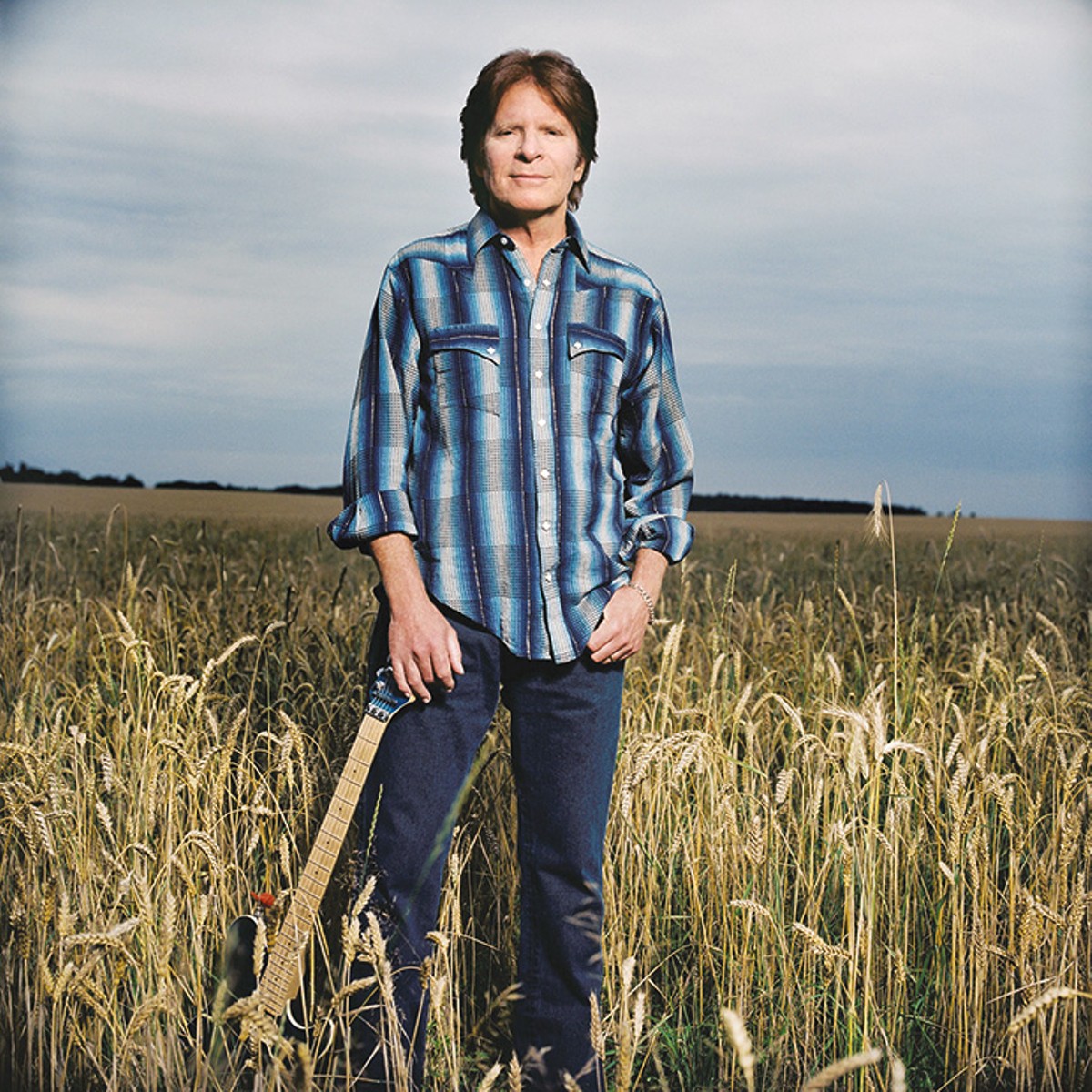Not many artists could release a record that features such disparate collaborators as the Zac Brown Band, the Foo Fighters, Keith Urban, Alan Jackson, Bob Seger, Dawes, Brad Paisley, Miranda Lambert, Tom Morello and Kid Rock. However, on 2013's Wrote a Song for Everyone, John Fogerty, former frontman for corner store bluegrass rock 'n' rollers Creedence Clearwater Revival, did just that. And, yeah, the record is an attempt at familiarizing the younger generations with the bard of the bayou, the Berkeley-born singer, songwriter and one hell of a guitar picker who you would've thought crawled right out of the gumbo-humid Delta upon first listen; but the son of a bitch has earned it.
With a career like Fogerty's, an artist who had his biggest hits and the resulting royalties largely stripped from him by his former manager Saul Zaentz, he exists alongside the greats of the past: Primarily black musicians who had their catalogs, royalties and credits robbed with the stroke of a pen or the piggybacked popularity of a more marketable (read: white) performer. In order to cut ties with Zaentz and his twisted Fantasy label, Fogerty agreed to forego any future royalties from CCR material, effectively missing out on millions, something few possess the integrity to do.
Fogerty is the Chuck Berry of the honky tonk. He's the Jim Morrison of the sock hop; twice the musician without any of the art school pretension or get-the-girls poesy. The banjo picker in the bog, toothy, barefoot and bleating out the blues. Fogerty has always sounded like a long-haired good ol' boy who's parked his big ol' Buick in a holler and is crowing into the moonlight with a basset hound and that elusive girl next door: Tom Petty's "American Girl," Chuck Berry's "Sweet Little Sixteen," Robert Johnson's "Kind Hearted Woman," Neil Young's "Cowgirl in the Sand," all the same girl, for sure. She's beautiful, isn't she?
I guess most folks call that America. Fogerty sings American songs: baseball, New Jersey, the swamp, the cotton field, Susie Q, the first TV, rock 'n' roll. That's American, right? No more American than underage Russian mail order brides, ugly pimps or rich fat televangelist adulterers, but Fogerty doesn't sing about them. And somehow, just like Buddy Holly, bobby socks and getting to third base, it's the blues. If Ike and Tina cover your shit, you are the shit. Period.
The beautiful thing about Fogerty's art, to me, is that he sounds real enough to encapsulate the emotion of the bluesmen before him; he's the real-deal-cotton-field. Deep in his chest, that rattling junk-croon comes screaming out. He understands that the word, the lyric, is always secondary to the sound being elicited. Something that is intrinsic in much of African-American singing and vocalizing. Fuck the words, more specifically their Merriam-Webster pronunciation, does it sound good? If it sounds good, the emotion fills in anything the words may miss.
"You got to hidey-idey-iii, you got-ta jum-pan-run ..." That's "The Old Man Down the Road," and one example of Fogerty's gift for vocalizing the feel, the hysteria of emotion, rather than utilizing a perfectly articulated, humdrum diction.
Just as the release of Dizzy Gillespie, Kenny Clarke and Charlie Parker's "Salt Peanuts," one of the first bebop records and a natural anti-depressant to the horrors of the Holocaust, ushered in the finale of the war that claimed over three percent of the world's population, Fogerty played us through the American War (as it's known in Vietnam) and set much of the common sense dissent of the youth to a beat (and not of the flatfoot variety).
He then took nearly a decade off, embroiled in legal struggles with Zaentz and his label, and returned with an updated sound and subject matter. Still tangling with the American imagination, our love/hate affair with war, media, corruption, exploitation, baseball and apple pie, Fogerty released Centerfield in 1985, which contained two songs specifically about Zaentz, "Mr. Greed" and "Zanz Kant Danz." The latter, along with "The Old Man Down the Road," also on Centerfield, earned Fogerty further time and court costs battling against his old nemesis.
The following years have seen the Blue Ridge Ranger take his rightful place alongside Young, Dylan, Santana, Hendrix, Joplin and those that they emulated and worshipped, the sounds they championed and the starched ideals and dictatorial demeanor they sought to abolish and drive from our shores — that most American of endeavors.
















